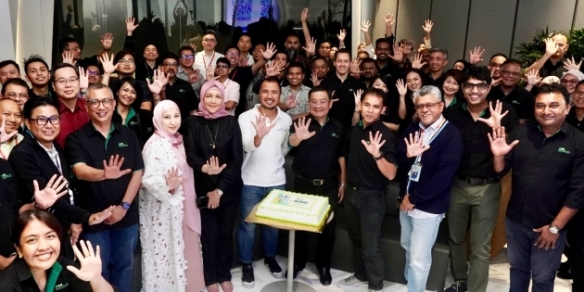Recruiting talent remains top concern for Singapore’s ICM industry
By Digital News Asia February 23, 2017
- Ninety-one percent of startups list recruiting talent as their gravest concern
- Key issue lies in filling vacancies with qualified local candidates

ALTHOUGH there is growth and jobs in the market, Singapore infocomm Technology Federation’s (SiTF) latest 2017 business outlook survey shows that the Infocommunications (ICM) industry continues to be hampered by difficulties in hiring talent with the right IT and business technical skills.
In a poll with 181 companies, 75% of respondents ranked their top concern as being unable to recruit the right talents.
Startups faced the most pressure in this area, with 91% listing recruiting the right talent as their gravest concern, followed by SMEs at 76% and MNCs at 75%.
Central to the concern of the industry’s talent shortage, all companies regardless of their size reveal that the key issue lies in filling vacancies with qualified local candidates (see Fig 1 below).

The five jobs hardest to find talent in Singapore are:
- Programmers (52%)
- Business development (50%)
- Cyber security specialists (40%)
- System architects (38%)
- Engineers (36%)
The next two concerns after the shortage of talent are the slowdown in the economy (70%) and increasing manpower costs (57%).
Solutions to help manage the talent shortage
To cope with the shortfall, 61% respondents said they are employing more contractors, part-timers or freelancers. More than half of the companies polled, or 56%, will upgrade their existing workforce so that they can handle more work and 49% plan to deploy technology to reduce their manpower needs. Other measures they plan to take include reviewing work processes to reduce work, employing foreigners and moving more work offshore.
Another option is to tap the pool of senior PMETs (more than 45 years old) available. Three quarters or 75% of companies surveyed said they do not have concerns hiring senior PMETs.
Of the remaining 25% that expressed some concerns, the fears were that senior PMETs might not be equipped with the right knowledge and capabilities, previous high remuneration packages and that they may not be able to cope with the pace and workload of existing jobs.
To raise the employability of PMETs, two-thirds or 65% of respondents (see Fig 2 above) believe that more can be done to help older PMETs find jobs. Among some of the suggestions include providing grants to make them easier to hire, funding of re-skilling PMETS so they can become more efficient and productive and developing a freelance or part-time talent pool that the industry can rely whenever required. Other ideas include creating paid internships or training courses for senior PMETs, and making the rules of hiring them more flexible (such as relaxing some MOM laws and reducing the need for long-term commitments).
Commenting on the survey results, Saw Ken Wye, chairman of SiTF, said “The talent crunch is not just a concern in Singapore, but a global problem which can hamper our ability to grow and affects Singapore’s drive towards a smart nation. This shortage could become more acute as companies go digital.”
“The SkillsFuture initiative and recommendations by the Committee on The Future Economy to ‘deepen’ our skillsets are positive steps taken by the government. At the same time, the ICM industry must continue to be proactive and aware as to how we can enlarge the talent pool and alleviate the shortage. Job seekers must play their part by learning new skills and upgrading themselves,” said Saw.
2017 technology trends
On the technology front, the five hottest trends identified by respondents are:
- Big Data and Data Analytics
- Cyber Security
- Artificial Intelligence
- Nano Sensors and Internet of Things
- Cloud/Client Computing
The top three business opportunities this year were Asean, investment by Singapore-based companies in technologies as well as government procurement.
The annual business outlook survey allows SiTF to get a sense of the market and a perspective of the issues impacting the industry, so that SiTF can represent their concerns accordingly. A total 181 companies comprising MNCs, SMEs and start-ups took part in the survey which was held in December 2016.
Related Stories:
This is what Singapore’s ICT millennials look for in an employer
The high cost of the IT security talent shortage
Fully half of Singapore ICT pros know they need to upskill: SCS survey
For more technology news and the latest updates, follow us on Twitter, LinkedIn or Like us on Facebook.



